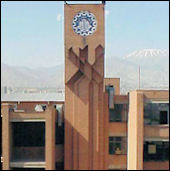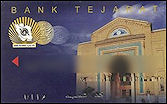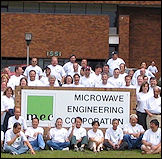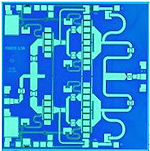
ABOVE: Sharif Univ. of Technology
Seyed Mojtaba Atarodi, a professor at Tehran’s prestigious Sharif University of Technology was arrested on December 7, 2011, when he stepped off a plane in Los Angeles where he had arrived for a medical visit to his brother’s cardiologist. The criminal complaint against him is sealed and the arrest was only made known because his name shows up in the Federal Bureau of Prisons inmate locator.
A bail hearing was held last week and Atarodi has been released on bail, partly due to his health problems. He has recently had two heart attacks, two heart surgeries and a stroke. Articles published by Atarodi that can be found on the web appear to deal mainly with semiconductor and microchip technology without any specific defense applications.
The U.S. government has still not released any information on the charges against Atarodi, although it is widely, and legitimately, assumed that they are export related. A spokesman for Sharif University said that Professor Atarodi was charged with buying scientific equipment from the United States, stating:
He was trying to buy some equipment for his lab, and the equipment was very, very simple, ridiculously simple stuff that anybody can buy. …
An official statement released by Sharif University, which appears to be aware somehow of the items mentioned in the indictment, said this about the items in question:
The items mentioned in the indictment, if truly purchased by him are all simple, basic, and elementary components and equipment that are easily sourced and can be found in every electrical engineering department. It is so disappointing to note that most of the items in question are not even the so called “dual use†equipment.
Of course, the Iran sanctions cover all items of any sort exported from the U.S., although an arrest and criminal prosecution is rare for items without some further strategic significance.
Even though the U.S. government’s lips are sealed, Atarodi’s defense counsel is not quite so taciturn and said to the Associated Press reporter that his client was more or less guilty:
Kohn said prosecutors “meticulously” built their case against Atarodi, who had come to Los Angeles seeking treatment from his brother’s cardiologist.
Meticulously? A statement like that, if he has been accurately quoted, makes you wonder which side of the case the defense attorney is being paid to argue. I suppose that if the government case is so “meticulous,” the alleged defense attorney can just teach Mr. Atarodi how to say “guilty” in English, collect his CJA reimbursement, and wait for another appointment.

 Posted by
Posted by  Category:
Category: 

 Yesterday, the U.S. Treasury Department’s Office of Foreign Assets Control (“OFAC”)
Yesterday, the U.S. Treasury Department’s Office of Foreign Assets Control (“OFAC”)  Rudolf Cheung, who is the head of the Research & Development department of
Rudolf Cheung, who is the head of the Research & Development department of 
 In a
In a 

